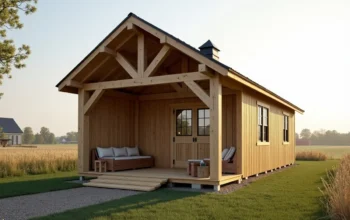
Remodeling a kitchen is thrilling because you’re reimagining the heart of your home. However, alongside the creative choices like cabinets and tiles, there’s a practical side that demands attention: the city’s permit process.
In Denver, permit fees aren’t arbitrary charges. They’re the city’s mechanism to ensure safety, quality, and code compliance in every remodel. Understanding them early helps homeowners avoid legal issues, construction delays, and unexpected costs later on. Here’s what you need to know:
Contents
What Permit Fees Are and Why They Exist
According to Forbes Home, most U.S. cities require building permits for renovations involving plumbing, electrical work, or structural changes. Denver is no exception. Permit fees are payments made to the city to review renovation plans and conduct inspections. The fees help fund public safety services, ensuring that your remodel doesn’t compromise your home’s structure or electrical system.
The fees vary based on project value and complexity. While a small update might need only a minimal permit, major kitchen overhauls involving rewiring or wall removal typically cost more and require multiple inspections. This system safeguards homeowners. Permits guarantee that a qualified inspector signs off at each stage of construction, ensuring compliance with building codes and providing documentation that protects your investment.
The Consequences of Skipping Permits
Skipping the permit process may seem like a shortcut, but it’s a costly gamble. Unpermitted work can result in fines or even forced demolition if discovered by city inspectors. When you sell your home, unpermitted renovations can reduce resale value or stall a deal entirely.
Buyers’ inspections often flag these issues, and lenders may hesitate to finance properties that don’t meet code standards. Worse, insurance claims related to unpermitted work, such as electrical fires or water damage, can be denied. Proper permits also serve as evidence of quality craftsmanship. They’re proof that the work was performed legally, inspected, and approved by local authorities.
Denver’s process can be time-consuming, especially for first-time remodelers. It involves submitting plans for review, securing permits, scheduling inspections, and obtaining final approval before completion. To ease the navigation process, you must:
- Consider Working With Experts
To simplify the process, many homeowners turn to professionals who handle permitting logistics. One trusted option is VL Builders, a Denver-based remodeling company known for managing every stage of the permit process. They ensure your project meets local building codes while keeping it on schedule, freeing you to focus on design and functionality.
- Know What to Expect From the City
Typically, the city requires detailed blueprints showing layout changes, plumbing routes, and electrical systems. Once plans are approved, the work proceeds under periodic inspections. Each stage must be signed off on before you can use your new kitchen.
- Budgeting for Permit Fees
Homeowners often underestimate permit costs. In Denver, permit fees are based on project valuation, usually ranging from a few hundred to a couple of thousand dollars. When preparing your budget, allocate at least 10 percent for permitting and inspections. Ask your contractor for a transparent estimate that includes all expected fees. Reputable builders provide cost breakdowns early, avoiding surprises once the project begins.
Tips for Homeowners
Other tips to consider include:
- Hire licensed professionals: Licensed contractors are required to pull permits and follow Denver’s codes.
- Document everything: Keep digital copies of permits, inspection results, and approvals for insurance and future resale.
- Don’t rush approvals: Waiting for official sign-offs protects your investment.
- Stay informed: Denver’s Community Planning and Development department updates requirements regularly, and checking early helps avoid revisions.
Endnote
Permit fees may seem like another bureaucratic step in your remodel, but they’re an essential part of building safely and responsibly. Every approved inspection adds value, confirming that your kitchen isn’t just beautiful, it’s built to last. By planning wisely, budgeting realistically, and working with the right experts, you ensure that your remodel becomes not only a design upgrade but a sound long-term investment in your home’s safety and value.



